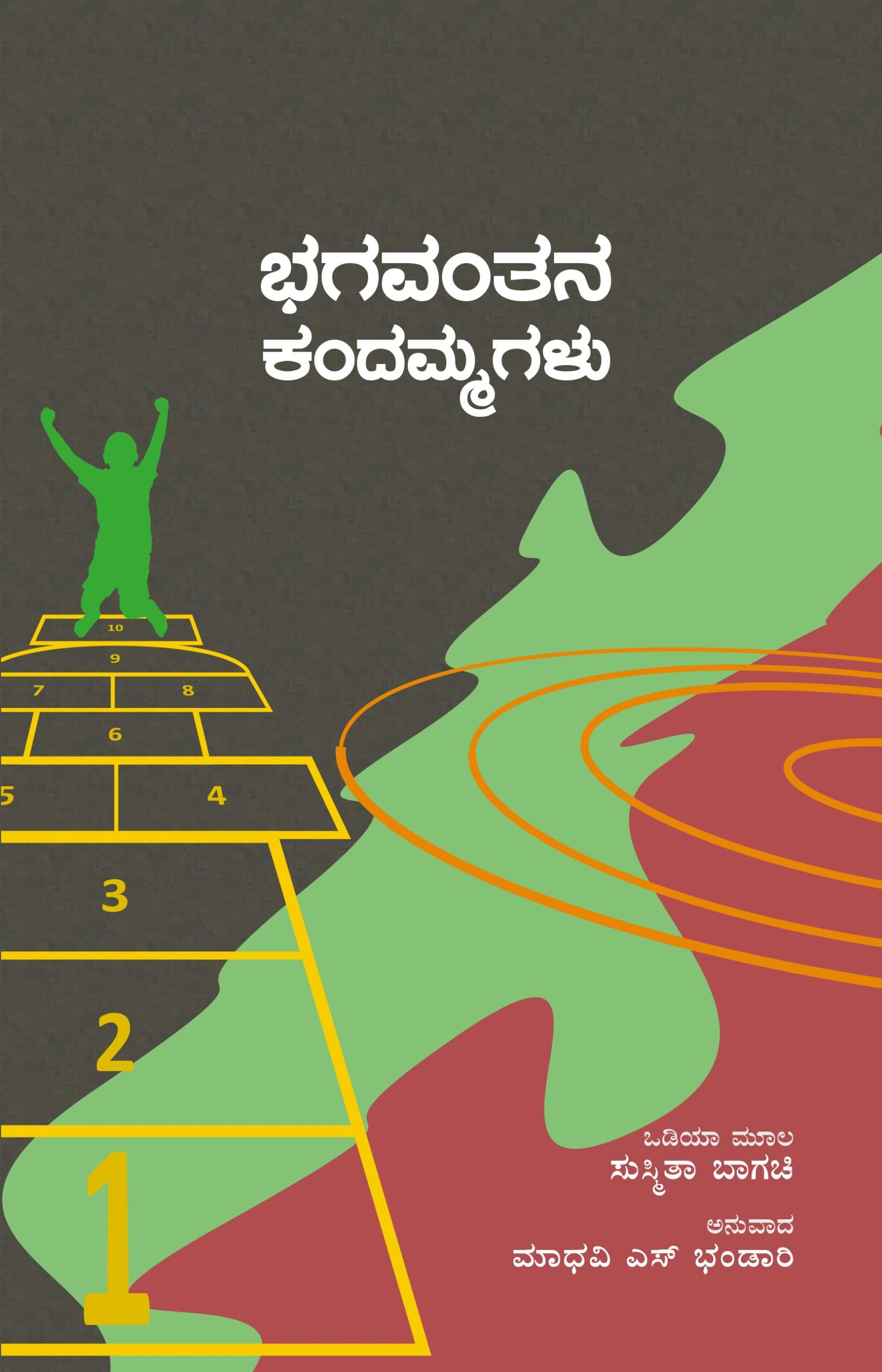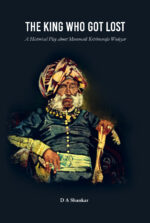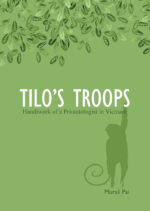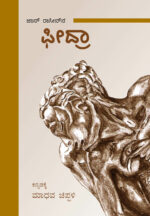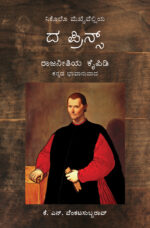Bhagavantana Kandammagalu
₹190.00
Author: Susmita Bagchi, Translator: Madhavi S Bhandary
ಅನುಪೂರ್ವಾ ಒಲ್ಲದ ಮನಸ್ಸಿನಿಂದ ಅನಿವಾರ್ಯವಾಗಿ ಅಮೇರಿಕಾ ಬಿಟ್ಟು ಭಾರತಕ್ಕೆ ಬರಬೇಕಾಯಿತು. ಕಲಾಶಿಕ್ಷಕಿಯಾಗಿ ಅಲ್ಲವಳ ಜೀವನ ಸುವ್ಯವಸ್ಥಿತವಾಗಿ ಸಾಗುತ್ತಿತ್ತು. ಭಾರತಕ್ಕೆ ಹಿಂದಿರುಗಿದ ನಂತರ ಅವಳ ಬದುಕು ಆಮೂಲಾಗ್ರವಾಗಿ ಬದಲಾಯಿಸಬಹುದೆಂದು ಅವಳು ಕನಸು-ಮನಸಲ್ಲೂ ಎಣಿಸಿರಲಿಲ್ಲ. ಒಮ್ಮೆ ಅವಳ ಕಾಲೇಜಿನ ಗೆಳತಿಯೊಬ್ಬಳು ಸೆರೆಬ್ರಲ್ ಪಾಲ್ಸಿ (ಮೆದುಳಿನ ಲಕ್ವ)ಯಿಂದ ಬಳಲುತ್ತಿರುವ ಮಕ್ಕಳ ಶಾಲೆ ‘ಆಶಾಜ್ಯೋತಿ’ಯ ಪರಿಚಯ ಮಾಡಿಸಿದಳು. ಅಲ್ಲಿಯೇ ಸ್ವಲ್ಪಕಾಲ ಆರ್ಟ್ ಟೀಚರ್ ರೂಪದಲ್ಲಿ ಸ್ವಯಂಸೇವಕಿಯಾಗಿ ಕೆಲಸ ಮಾಡುವ ಅವಕಾಶವೂ ದೊರೆಯಿತು. ಚಿತ್ರಗಳನ್ನು ಬಿಡಿಸುವುದು ಹೇಗೆ, ಅದಕ್ಕೆ ಹೇಗೆ ಬಣ್ಣ ತುಂಬಬೇಕು ಇತ್ಯಾದಿ ವಿಷಯಗಳನ್ನು ಅಲ್ಲಿಯ ಮಕ್ಕಳಿಗೆ ಹೇಳಿಕೊಡಲಾರಂಭಿಸಿದಳು. ಆದರೆ ಆ ಮಕ್ಕಳು ಅವಳಿಗರಿವಿಲ್ಲದಂತೆ ಗೆಳೆತನದ, ಪ್ರೇಮದ, ನಗುವಿನ, ಎಲ್ಲಕ್ಕಿಂತಲೂ ಮಿಗಿಲಾಗಿ ರೋಗದೊಂದಿಗೆ ಹೋರಾಡುವ ಪಾಠ ಅರ್ಥಾತ್ ಬದುಕಿನ ವಾಸ್ತವಿಕತೆಯ ಪಾಠ ಕಲಿಸಬಹುದೆಂದು ಅವಳಿಗೇನು ಗೊತ್ತಿತ್ತು! ಹೊರಜಗತ್ತು ಅವರನ್ನು ಶಾರೀರಿಕ ಅಥವಾ ಮಾನಸಿಕ ದೃಷ್ಟಿಯಿಂದ ದುರ್ಬಲರೆಂದು ತಿಳಿದುಕೊಳ್ಳಲಿ! ಆದರೆ ಅವರ ಅಂತರಂಗದಲ್ಲಿ ಏನನ್ನಾದರೂ ಸಾಧಿಸಬೇಕೆಂಬ ಅಪಾರ ಕ್ಷಮತೆ ಅಡಗಿದೆ ಎಂಬುದು ಅವಳ ಅರಿವಿನ ಕ್ಷಿತಿಜವನ್ನೇ ವಿಸ್ತರಿಸಿತು. ಅನುಪೂರ್ವಾ ಮತ್ತಾರೂ ಅಲ್ಲ, ಸ್ವಯಂ ಲೇಖಕಿಯೇ! ಈ ಮಕ್ಕಳ ಅಂತರಂಗದ ಪುಟಗಳನ್ನು ಅತ್ಯಂತ ಹತ್ತಿರದಿಂದ ನೋಡಿದ್ದಾರೆ; ತಿಳಿದಿದ್ದಾರೆ; ಮತ್ತದನ್ನು ಶಬ್ದಗಳ ಮೂಲಕ ಕಾದಂಬರಿಯ ರೂಪದಲ್ಲಿ ಜೋಡಿಸಿದ್ದಾರೆ. ಈ ಒಂದು ರೋಚಕವಾದ ಕಥೆ ಒಡಿಯಾದಲ್ಲಿ ‘ದೇಬಶಿಶು’ವಾಗಿದ್ದುದು, ಅಜಯ್ ಪಟ್ನಾಯಕ್ರು ಅದನ್ನು ‘ದೇವಶಿಶು’ ವಾಗಿ ಹಿಂದಿಗೆ ಅನುವಾದಿಸಿದರು. ಆ ಹಿಂದಿ ಅನುವಾದವು ಜ್ಞಾನಪೀಠ ಪ್ರಕಾಶನದಿಂದ ಪ್ರಕಟಗೊಂಡಿದೆ. ಈ ಕೃತಿಯು ಬಿಕ್ರಮ್ ಕೆ. ದಾಸ್ರಿಂದ ‘Children of Better God’ ಎಂಬ ಹೆಸರಿನಲ್ಲಿ ಆಂಗ್ಲ ಭಾಷೆಗೂ ಅನುವಾದಗೊಂಡಿದೆ. ಇದೀಗ ‘ಭಗವಂತನ ಕಂದಮ್ಮಗಳು’ ರೂಪದಲ್ಲಿ ಕನ್ನಡದ ಓದುಗರ ಮುಂದಿದೆ.
Interested customers may write to us at mup@manipal.edu about purchasing the book.
| Also available on |
| Author | |
|---|---|
| Format |

